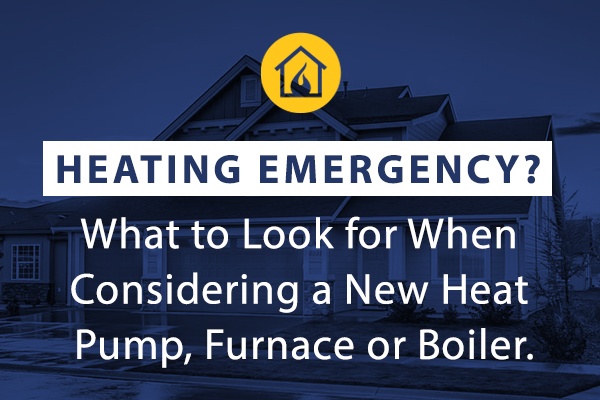
But while you may be tempted to install the first furnace, heat pump, or boiler your contractor suggests, you don’t want to make the wrong choice and end up with a heating system that doesn’t meet your needs.
To avoid this issue, take a look at these important points that you can discuss with your HVAC contractor. These three crucial topics will allow you to have a productive and efficient discussion about what you need so that you can get it as soon as possible.
Don’t assume that the biggest, most powerful system is the best option for keeping your home warm. Whether you’re in the market for a furnace, a heat pump, or a boiler, know that finding a unit that’s the right size for your home is important. If it’s too large or too small, the heating system won’t be efficient and will either waste energy turning on and off or quickly become overworked.
The best way to choose the right size system for your home is to have your HVAC contractor perform a heat load calculation. This calculation takes your home’s square footage, air tightness, insulation, and other measurements into account in order to find out how much heating power your home really needs.
A maintenance contract is an agreement with your HVAC contractor that provides you with ongoing service for your new heating system in exchange for a set fee.
A maintenance contract is extremely valuable, especially because it’s a simple way to help prevent future issues with your heating system. If you set up a maintenance contract with your HVAC contractor, then you’ll probably be much more likely to schedule regular tune-ups and yearly service—after all, they’re already paid for. This can extend the life of your new heating system and keep it running efficiently.
But what exactly should be included in a maintenance contract? It should at least cover your system’s annual or bi-annual tune-up and routine service as well as ensure that you receive priority or same-day service. If you choose to pay for a more comprehensive plan, it may even cover the parts needed for repair during routine tune-ups, though this will likely cost more.
Ask your contractor about energy efficient options. An energy efficient heating system will keep your home comfortable at a lower utility cost. One way to gauge the efficiency of a heating system is by looking at its Annual Fuel Utilization Efficiency (AFUE) rating. This rating is calculated by comparing how much fuel a system requires to run with how much heat energy it is actually able to produce. The higher the system’s AFUE rating, the more efficient it will be for your home.
If you’re installing a heat pump, you should also find out what the unit’s Seasonal Energy Efficiency Ratio (SEER) is. This rating is essentially the same as the AFUE rating, but it is designed for the cooling apparatus in the heat pump. The SEER rating will be important for both your comfort and your energy bills this summer.
Keep these topics in mind when you meet with your contractor and be sure to address each of them when you install a new heating system this winter.
If you’ve experienced a heating emergency and need a new furnace, boiler, or heat pump, the HVAC professionals at HB Home Service Team can help. With over 100 years of experience in Central Pennsylvania, HB Home Service Team delivers quality residential heating services. We serve homes and businesses in Camp Hill, Carlisle, Dillsburg, Enola, Harrisburg, Hershey, Hummelstown, Mechanicsburg, Middletown, New Cumberland, York, and the surrounding areas. Call us at 717-232-4328 or request an appointment online.